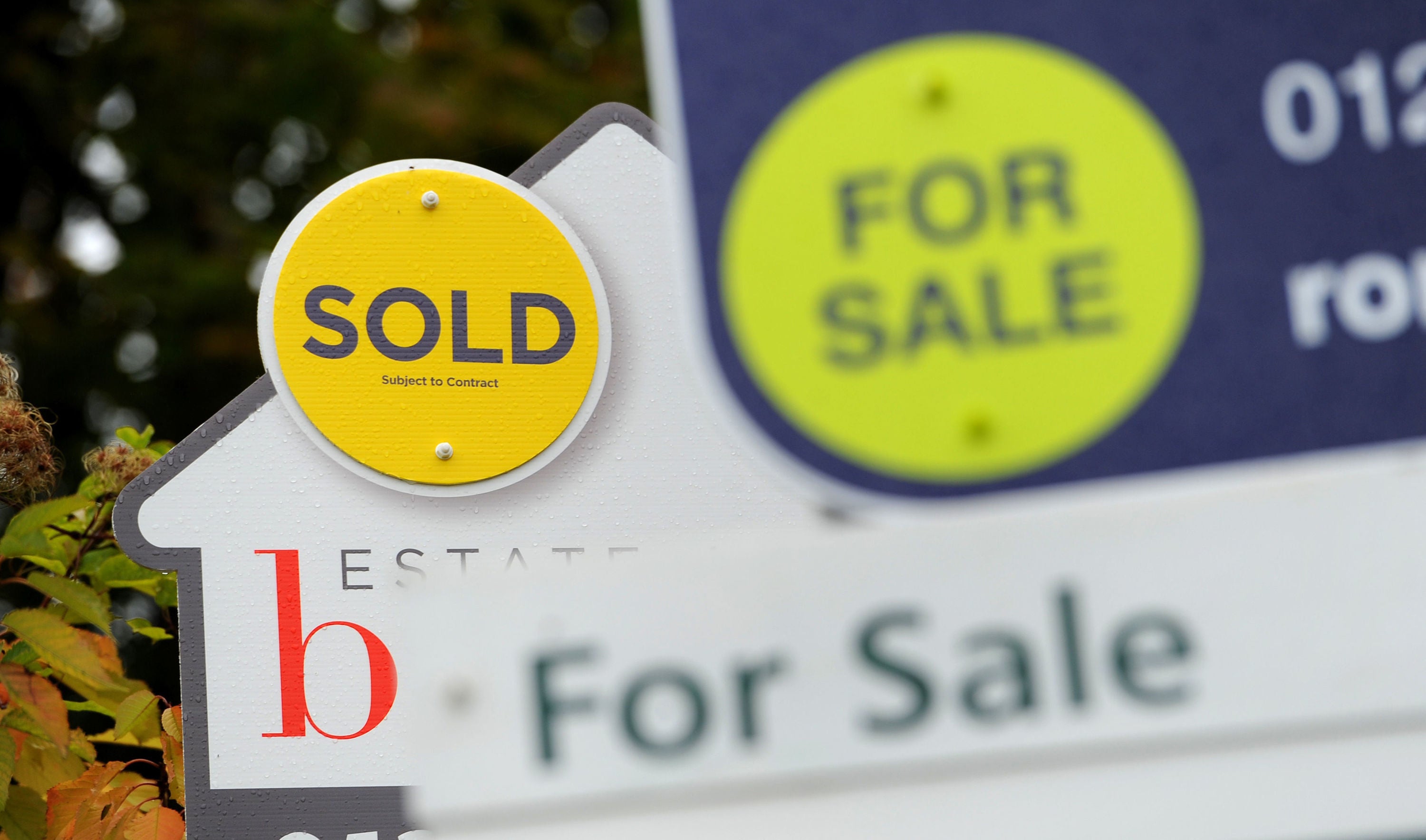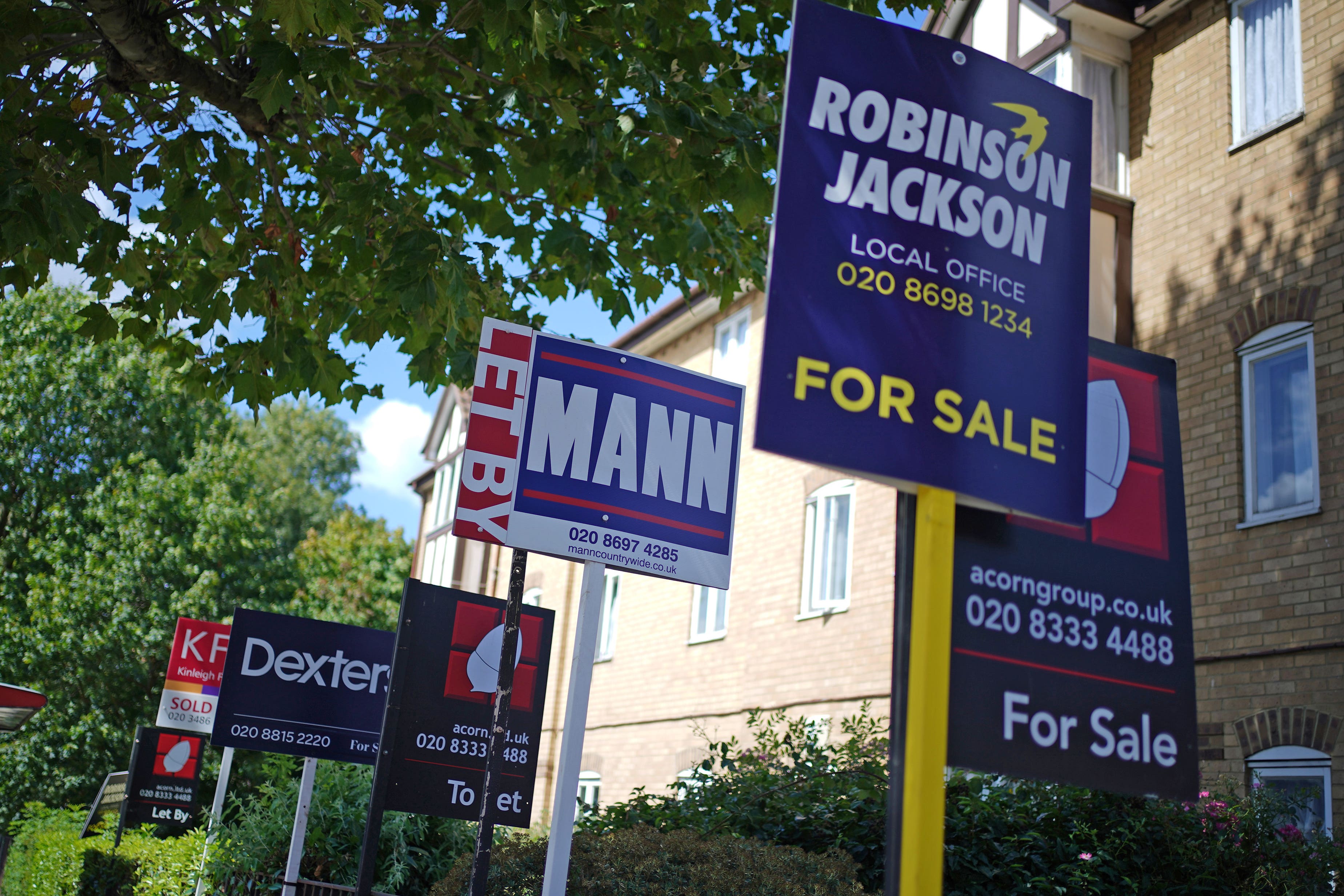House prices end year 1.8% lower as East Anglia faced biggest drop in UK
Average house prices in England down 2.9 per cent on last year

Your support helps us to tell the story
From reproductive rights to climate change to Big Tech, The Independent is on the ground when the story is developing. Whether it's investigating the financials of Elon Musk's pro-Trump PAC or producing our latest documentary, 'The A Word', which shines a light on the American women fighting for reproductive rights, we know how important it is to parse out the facts from the messaging.
At such a critical moment in US history, we need reporters on the ground. Your donation allows us to keep sending journalists to speak to both sides of the story.
The Independent is trusted by Americans across the entire political spectrum. And unlike many other quality news outlets, we choose not to lock Americans out of our reporting and analysis with paywalls. We believe quality journalism should be available to everyone, paid for by those who can afford it.
Your support makes all the difference.Massive hikes in mortgage rates failed to give UK house prices a boost or fall at the end of 2023, Nationwide has said.
The average price of a home was £257,443 in December, according to the lender, which showed no change from the previous month.
This means house prices in the UK end the year 1.8 per cent cheaper than they had been at the end of 2022, and 4.5 per cent below the all-time peak in the summer of 2022.
England saw the biggest drop in prices, down 2.9 per cent compared to a year ago.
Prices fell the most rapidly in East Anglia, down 5.2 per cent year-on-year. Prices generally fell faster in the south of England than in the north, according to the forecasts.
But despite the fall in England and Wales – where house prices dropped 1.9 per cent – house prices rose by 4.5 per cent in Northern Ireland and in Scotland they were up 0.5 per cent.

“Housing market activity was weak throughout 2023,” Nationwide’s chief economist, Robert Gardner, said.
“The total number of transactions has been running at (about) 10 per cent below pre-pandemic levels over the past six months, with those involving a mortgage down even more (about 20 per cent), reflecting the impact of higher borrowing costs.
“On the flip side, the volume of cash transactions has continued to run above pre-Covid levels.”
It comes as the cost of borrowing has increased dramatically over the last two years, with the Bank of England’s base interest rate increasing from 0.1 per cent in December 2021 to 5.25 per cent today.
Mr Gardner said: “A rapid rebound in activity or house prices in 2024 appears unlikely.
“While cost of living pressures are easing, with the rate of inflation now running below the rate of average wage growth, consumer confidence remains weak and surveyors continue to report subdued levels of new buyer inquiries.
“Moreover, while markets are projecting that the next bank rate move will be down, there are still upward risks to interest rates. Inflation is declining, but measures of domestic price pressures remain far too high.”
Join our commenting forum
Join thought-provoking conversations, follow other Independent readers and see their replies
0Comments